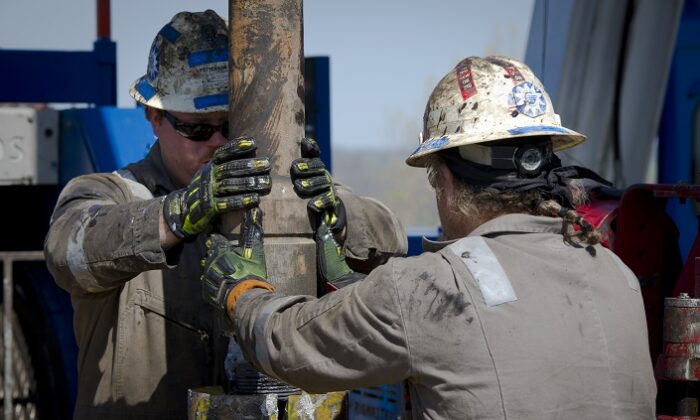While only Congress has the power to prohibit hydraulic fracturing on federal lands, an administration can make the permitting process more challenging and costly. This issue has become a point of contention in the 2024 presidential campaign between Democrat nominee Vice President Kamala Harris and Republican opponent, former President Donald Trump.
It is important for voters to understand that a president cannot unilaterally ban fracking through an executive order. However, an administration can impose regulatory restrictions that would increase the difficulty and expense of obtaining permits for hydraulic fracturing.
Industry representatives confirm that to enact a ban on hydraulic fracturing, the president would need legislation from Congress, and even then, it would only apply to federal public lands. For example, in Pennsylvania, which is a major producer of fracked natural gas, very little drilling occurs on federal lands.
An administration, with a cooperative Congress, can leverage various regulatory tools to impose restrictions on fossil fuel extraction. These rules could affect not only federal lands but also impact fracking operations on state and private lands. These regulatory levers could include rules on methane emissions and water regulations that could impact oil and gas development in states like Pennsylvania.
Despite previous statements indicating support for banning fracking, Harris clarified during a debate that she does not plan to do so. She emphasized her role in promoting clean energy and domestic gas production during her time as vice president.
While the president does not have the authority to unilaterally ban fracking, they can influence energy policy through regulatory actions. For example, previous administrations have implemented regulations on fracking operations on federal lands, although some of these rules have faced legal challenges.
It is essential to recognize the limitations of a president’s power in this context and understand the complex interplay between federal regulations and energy production.

All About Rules and Regulations
The Biden administration withheld public land leases and delayed offshore leasing auctions for more than two years until it revised regulations and fees for lease auctions.
Under the new rule, the minimum royalty rate for oil generated from federal lands also rose to 16.67 percent from 12.5 percent of revenue. It is comparable to royalty rates assessed by states and private landowners.
Those rates don’t affect current federal public lands and offshore leases, but will when they’re developed in the future, industry representatives such as Sgamma maintain.
Although a president doesn’t have the authority to ban fracking, some believe Harris, who said her stance on the issue is “pragmatic,” would increase regulatory scrutiny on oil and gas if elected.
“We would fully expect a Harris-Walz administration to sustain the Biden-Harris administration’s hostility” to fossil fuel development, Sgamma said.






